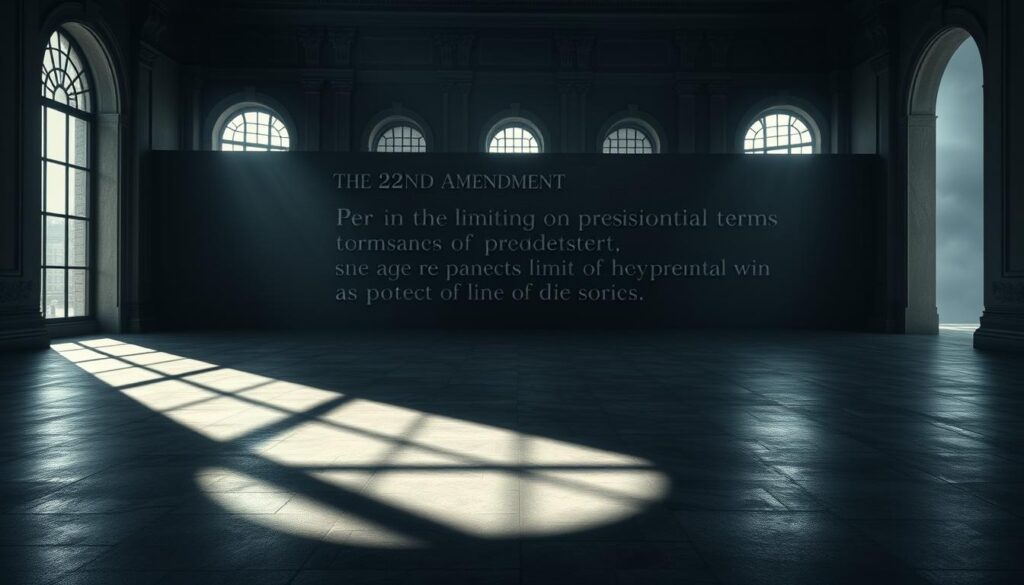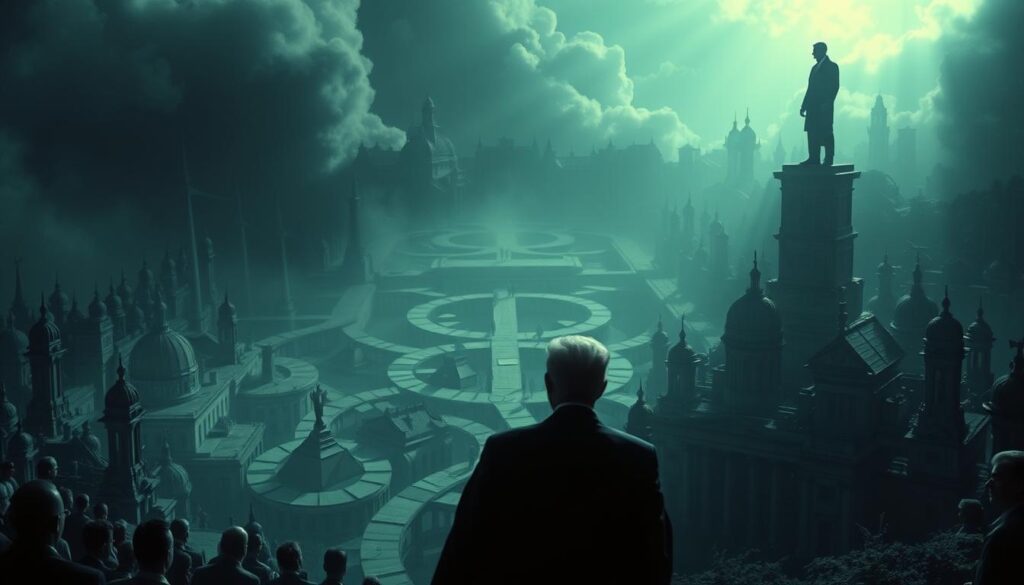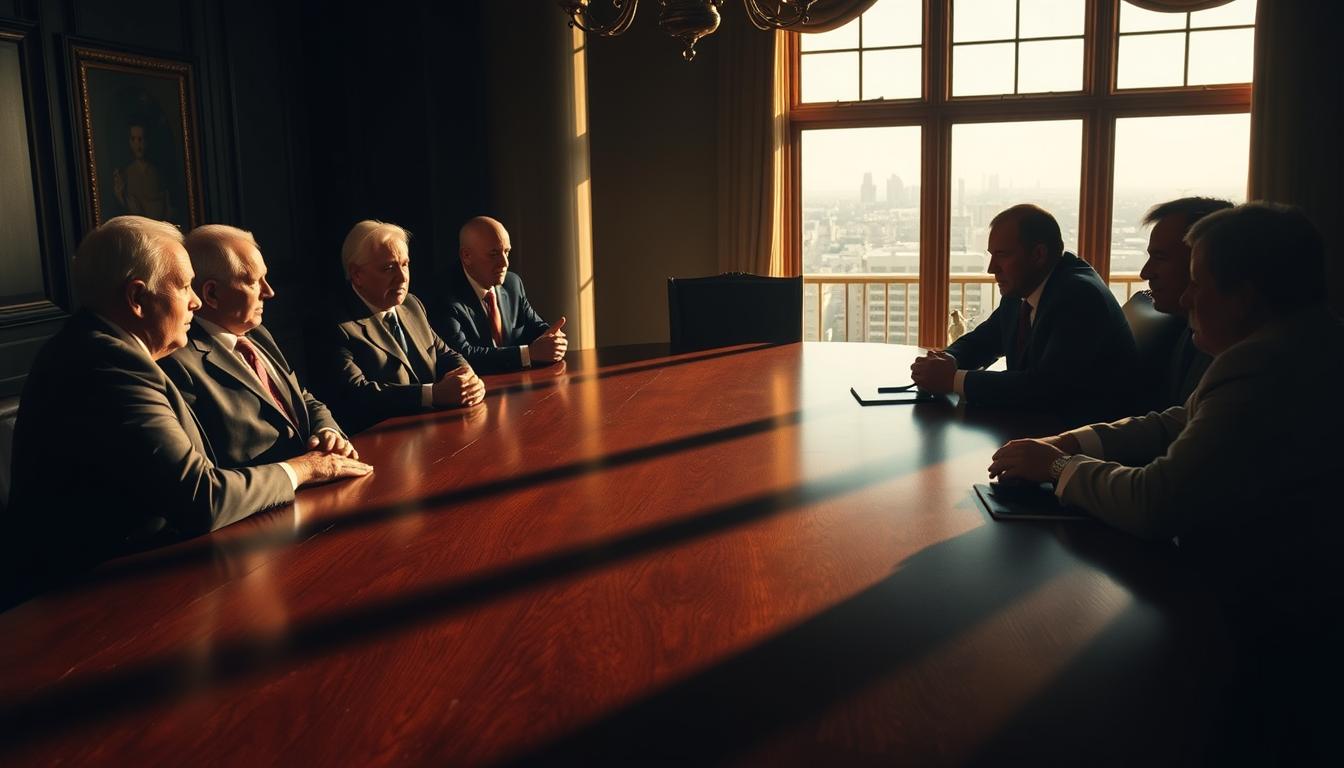Imagine a leader so determined that even constitutional limits spark debates. The idea of extending a presidency beyond two terms isn’t new, but recent discussions have brought it back into the spotlight. With age and ambition in play, the question lingers: could it actually happen?
In a recent interview, the former president hinted at possible methods, though he remained vague. Allies like Steve Bannon and Rep. Andy Ogles have openly supported the idea, adding fuel to the conversation. Yet, the 22nd Amendment stands as a clear barrier—one that hasn’t been challenged since FDR’s era.
Public perception may hinge on factors like age and legal feasibility. At 78, the former leader would be 82 by the end of a second term, raising questions about stamina and voter appeal. While some see this as a long shot, others believe nothing is off the table in today’s political climate.
Key Takeaways
- The 22nd Amendment limits presidents to two terms, but discussions persist.
- Key supporters are pushing for legal changes to allow an extended tenure.
- Age could influence public opinion on feasibility.
- Historical context shows only FDR served more than two terms.
- Legal experts debate loopholes, but major hurdles remain.
Trump’s Remarks on a Potential Third Term
Political circles are buzzing after a high-profile interview hinted at bold moves. In a Sunday phone call with NBC’s Kristen Welker, the former president discussed strategies that could extend his time in office. Though vague, his comments sparked immediate debate.
“There are methods”: Trump’s NBC Interview
He suggested Vice President JD Vance might “pass the baton” after the 2028 election. This theory involves resigning to allow succession, though legal experts question its feasibility. When pressed for details, he replied, “There are methods, but it’s far too early.”
Foreign policy also surfaced. He threatened secondary sanctions on Russian oil if ceasefire efforts fail. Reacting to Putin’s criticism of Zelenskyy, he admitted feeling “very angry”—a rare emotional glimpse.
Public and Political Reactions
Responses split sharply:
- Support: Ally Steve Bannon endorsed exploring “creative interpretations” of term limits.
- Opposition: Senator Markwayne Mullin (R-Okla.) called it “unconstitutional.”
NBC News released a partial transcript, but without audio verification, skepticism lingers. The administration insists focus remains on the present, yet speculation grows.
Legal Barriers: The 22nd Amendment Explained
The U.S. Constitution has clear rules about how long a person can hold the highest office. The 22nd Amendment, added in 1951, stops anyone from being elected more than twice. This change came after Franklin D. Roosevelt won four terms, raising concerns about unlimited power.

History and Purpose of the Two-Term Limit
Before 1951, no law limited presidential terms. George Washington set a two-term tradition, followed for over 150 years. FDR broke this norm during World War II, serving from 1933 until his death in 1945.
Congress reacted by passing the 22nd Amendment. It states: “No person shall be elected to the office of the President more than twice.” The goal was to prevent any future leader from gaining too much control.
Could the Constitution Be Amended?
Some supporters suggest changing the rules. Representative Andy Ogles proposed letting presidents serve three terms if not consecutive. But amending the Constitution isn’t easy.
It requires:
- Two-thirds approval in both House and Senate
- Ratification by three-fourths of states
With today’s divided government, experts call this idea highly unlikely. Even supporters admit it’s a long shot.
Why Experts Say a Loophole Is Unlikely
Legal scholars have examined every possible way around the 22nd Amendment. Notre Dame professor Derek Muller explains: “There’s no ‘one weird trick’—the 12th Amendment blocks VP workarounds too.”
The Brennan Center’s Michael Waldman agrees: “It’s illegal. He has no chance.” Courts would likely reject any creative attempts to bypass term limits.
While some still discuss the idea, most agree the barriers are simply too strong. The 22nd Amendment remains a firm check on presidential power.
Hypothetical Methods to Bypass Term Limits
The Constitution sets firm limits, but some still search for gaps in the rules. While most experts dismiss these ideas, a few theories have gained traction—despite their legal flaws.

The VP “Baton Pass” Theory
One idea suggests a vice president could resign after winning office, allowing the former leader to return. Legal scholars quickly debunked this. Notre Dame’s Derek Muller notes: “The 12th Amendment blocks ineligible candidates from even becoming VP.”
Supporters like Steve Bannon argue for “creative interpretations,” but Congress shows zero interest. Even if attempted, courts would likely strike it down.
Symbolic Gestures and Loopholes
Other efforts lean on imagery. A February social media post declared “LONG LIVE THE KING”, paired with digital crown graphics. While playful, it underscores a broader fascination with prolonged power.
Historical parallels exist—like leaders exploiting emergency powers abroad. Yet in the U.S., the lack of legislative backing makes any method a long shot.
- Constitutional Hurdles: Amendments require overwhelming support, unlikely in today’s divided climate.
- Public Skepticism: Polls show most Americans oppose altering term limits.
- Legal Consensus: Scholars agree no viable loophole exists.
Conclusion: Why a Third Term Remains Unlikely
While some push boundaries, constitutional checks remain a strong counterbalance. Changing term limits requires 34 states to agree—a steep climb in today’s divided climate. Even if attempted, experts stress the 22nd Amendment leaves no loopholes.
Age adds another hurdle. Past leaders like Obama and Bush respected two-term traditions, and voters may hesitate with older candidates. The current administration faces similar scrutiny.
Despite bold comments, the idea lacks bipartisan support. Legal scholars unanimously agree: without rewriting the Constitution, extra terms won’t happen. As one leader quipped, “It’s far too early to think about.” For now, democracy’s guardrails hold.
Source Links
- https://www.nbcnews.com/politics/donald-trump/trump-third-term-white-house-methods-rcna198752
- https://www.cbsnews.com/news/trump-third-term-nbc-interview/
- https://www.theguardian.com/us-news/2025/mar/30/trump-third-term-president
- https://www.aljazeera.com/news/2025/3/30/trump-insists-he-is-not-joking-about-seeking-a-third-term-as-president
- https://www.newsweek.com/donald-trump-gives-update-third-term-plans-2052785
- https://www.foxnews.com/politics/trump-teases-running-third-term-not-joking
- https://www.forbes.com/sites/alisondurkee/2025/03/30/no-trump-wont-likely-get-to-run-for-a-third-term-heres-why/
- https://apnews.com/article/trump-third-term-constitution-22nd-amendment-efba31be02ee96b0ef68b17fe89b7578
- https://san.com/cc/trumps-not-joking-about-potential-3rd-term-despite-constitutional-barriers/
- https://nypost.com/2025/03/30/us-news/trump-says-hes-not-joking-about-third-term-and-notes-an-apparent-loophole-to-limit-there-are-methods/
- https://www.spokesman.com/stories/2025/mar/30/trump-suggests-methods-exist-for-bid-for-unconstit/
- https://cornerstonelaw.us/22nd-amendment-doesnt-say-think-says/
- https://www.factcheck.org/2024/11/can-trump-serve-a-third-term/

Leave a Reply